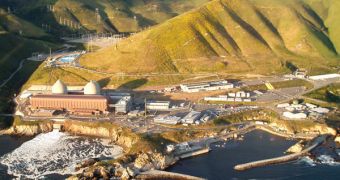The one thing both renewable energy proponents and nuclear reaction supporters agree on is that fossil fuels will be completely out of the picture in a few decades, mainly because they will have polluted the atmosphere too much by then, but also because they might run out eventually, leaving the world in a huge black-out. The race is now on to see which energy source will power up the future.
Right now, nuclear energy accounts for about 9 percent of the total electricity production worldwide, whereas renewable sources, including solar, geothermal, eolian and underwater, only generate about 6 percent. Predictions say that oil, coal and natural gases will be depleted in 50 years tops, so, by that time, technologies need to be set in place to cover the ever-increasing electrical necessities of the world.
The only chance for renewable energy to take the edge is for people to come up with new extraction methods that are not as costly as those currently available. Solar energy seems to be growing more efficient even now, with new technologies being devised to increase production, while minimizing the overall costs. Underwater turbines, which use deep-sea currents to generate electricity, have great potential, given the fact that they do not affect the environment and the animal species around them. In fact, areas where these turbines are located are banned from commercial activities.
Nuclear energy, on the other hand, is very expensive to build and production times are very extended. Crucial components are manufactured in but a few selected locations. Those factories almost never manage to cope with an ever-increasing demand in spare parts and this fact "bottlenecks" large-scale constructions. If the future of the global power grid is nuclear, then new facilities will have to be built by 2030, in order to avoid widespread, lasting black-outs.
Currently, nuclear energy has the advantage, because a small infrastructure is already built and results are visible. The International Atomic Energy Agency has announced that more than 40 nations, including Nigeria, Egypt and Turkey, have informed it of their intentions to start building their own nuclear power plants, to power up their own electrical grids. But this poses new questions, especially in regard to world security, seeing how converting a nuclear-powered electrical plant into an atomic bomb production facility is relatively easy.

 14 DAY TRIAL //
14 DAY TRIAL //